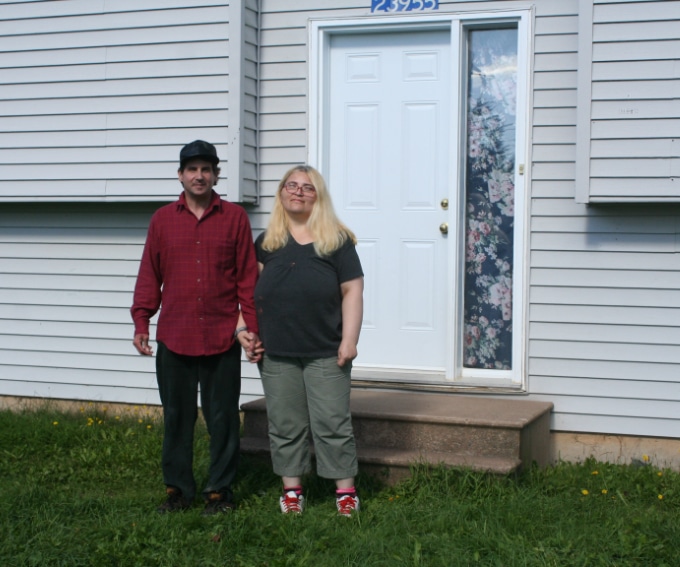KJIPUKTUK (Halifax) – A Sheet Harbour family on income assistance is suddenly stuck with a $60 monthly power bill it can ill afford.

That $60 is the amount they’re short after Community Services pays their rent and power bill to the maximum allowable amount.
The family of three has lived in the house since 2004. Until January of this year Community Services had always taken care of the entire power bill. It’s not clear what triggered the change.
“When this new worker came on, she did not really give me much choice,” says Donna Fralick-Maguire. “My worker, she said, well the bill is quite high. Community Services were paying it every two months, but not anymore.”
I first met Donna and her husband Brent Maguire last summer. Their house was in a terrible state of disrepair, with mould on the walls, rotten gutters, drafty and cracked windows, and much more. After we published a story, including lots of photos, some issues were quickly addressed, other issues remain.
Brent and Donna are struggling to make ends meet, and an extra $60 that now must come out their meagre living allowance is pretty much a disaster.
One thing that will have to give are travel expenses, says Donna. Remember, this is rural Nova Scotia, and Dona and Brent live quite the distance from town.
“That extra money allowed us to get out three times a month, now we need to cut back on something else. This travel is for necessities, child tax time, food bank time, and end of month time. Not to have fun,” says Donna.
Donna says that their caseworker doesn’t understand how travel works in rural Nova Scotia.
“They want to give bus passes for the people in the city, but here we must fend for ourselves. Getting around here is hard. I had a worker tell me before that people are supposed to understand you’re poor and take you places for nothing. But that’s not how it works. It costs like $20 to get somewhere. Even three or five dollars isn’t going to cut it.”
It’s a big problem for the couple.
“They make it look like it is no big deal,” says Brent. “But our worry is that next year it goes up even more. We only heat our bedroom, the kitchen, a little bit in the living room, and our daughter’s room. There are six rooms in our house that aren’t heated at all.”
“Income Assistance payments include the costs of power bills up to the maximum allowable shelter expenses based on family size,” writes Bruce Nunn, spokesperson for the department of Community Services.
We asked the department what would have changed in the family’s circumstances to cause their caseworker to impose this substantial burden on their budget, but Nunn declined to answer, explaining that the department cannot speak to individual cases or situations.
If you can, please support the Nova Scotia Advocate so that it can continue to cover issues such as poverty, racism, exclusion, workers’ rights and the environment in Nova Scotia. A pay wall is not an option, since it would exclude many readers who don’t have any disposable income at all. We rely entirely on one-time donations and a tiny but mighty group of dedicated monthly sustainers.




It sounds like this couple is getting the runaround and the department hides too easily behind the standard line of not commenting on individual cases.
This is Donna Elissa I agree with u. They don’t give ba care how people live as long as they make their money off clients.
Here’s what i can’t understand
NS has the highest paying tax i believe. But I read some where how we are a poor province. So why is our tax high but minimum wage is 11 dollars as of April 1st. So if they calm we are so poor as a province why is our tax so high and people struggling to make ends meet. And social assistance don’t give you much to live on. They don’t care if your rent is 700 they give you the max that’s allowed and that’s it. You will have to figure out how to survive on what’s left. It’s sicking how our government is. And how they treat us as citizens.